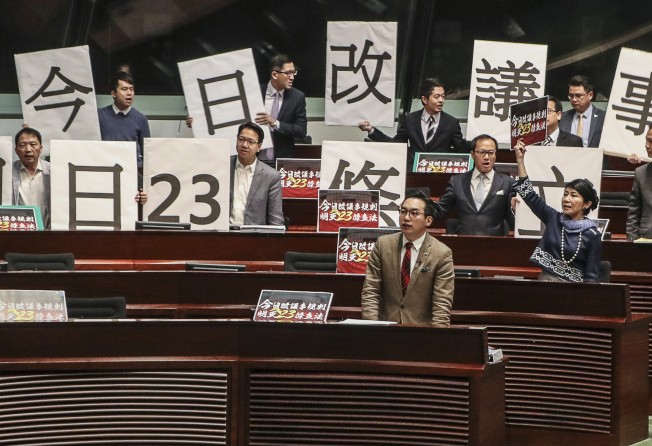Can polarised Hong Kong accept that democracy is not always best?

As seen in the recent elections in Malaysia, democracy has become very adversarial (“Mahathir Mohamad claims victory, warns Najib Razak against frustrating ‘wishes of the people’”, May 9.) The winner wins it all, apparently, and the loser gets nothing. Unless, of course, the country in question is in a conflict zone like Afghanistan or Kenya, in which case – sometimes after horrible atrocities have been committed – a form of power-sharing is sorted out.
Would not a more inclusive voting procedure be wiser? Something like the original American system in which the winner became the president, but the runner-up became the vice-president. Democracy, after all, is meant to be for everyone, not just a majority.
Majority voting, first used in ancient Greece and the imperial court during the Chinese Han dynasty, is over 2,000 years old. But pluralism is possible: multi-option voting was proposed by ancient Roman writer Pliny the Younger in the year 105, while preferential voting was advocated by the 13th century European theologian and mystic Ramón Llull.
Majority voting is divisive, often inaccurate and sometimes a provocation to violence. “All the wars in the former Yugoslavia,” for example, “started with a referendum” – to quote the Oslobodjenje newspaper in Sarajevo, Bosnia and Herzegovina, in February 1999.
Preferential points voting, in contrast, allows compromise options to be included on the ballot paper; secondly, it can identify that option which has the highest average preference, and an average, of course, involves everyone who votes, not just a majority of them.
The adoption of such a voting procedure in the elected chambers of both Taiwan and Hong Kong could well help to ameliorate the polarisation of these two societies, much of which is based on arguments about a referendum which is just assumed will be binary.
This weakness of the democratic process is also painfully apparent in Britain over Brexit, let alone in the US where everything, it seems – Obamacare and the nuclear treaty on Iran, for example – is based on the two-party system, the politics of the pendulum.
Peter Emerson, director, the De Borda Institute, Belfast